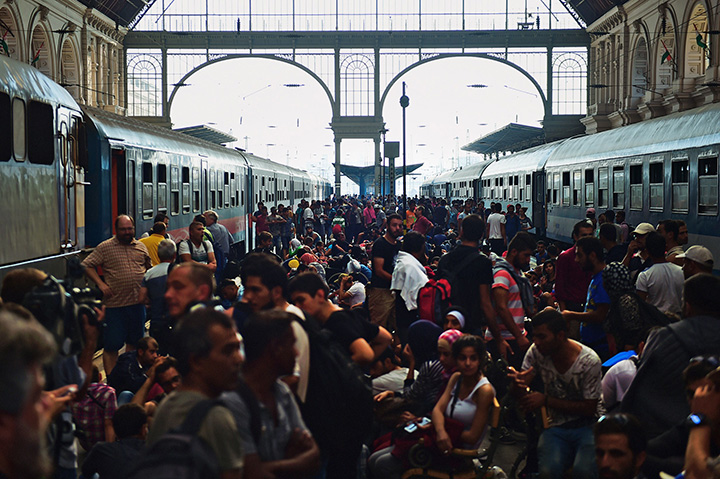Europe’s refugee crisis is growing more complicated by the day. European Union interior ministers are set to meet for emergency talks on Monday, after Germany was forced to reintroduce checks at its border with Austria to stem the continuing flow of refugees.

But thousands of refugees determined to flee life-threatening situations at home continue to arrive daily, many using social media and tools like Google Maps to help cross borders and avoid trouble.
“Without Google Maps we would be lost,” a Syrian refugee told the BBC last week. “Without digital technology we can’t reach there. It’s very hard – and it’s dangerous and risky.”
According to the refugee, migrants use many tech tools to stay in communication and map the road to a better life.
The so-called “digital refugees” use a variety of free messaging tools – including Facebook Messenger, WhatsApp and Viber – to share directions and information about road blocks. Facebook is often used as a place to share information about “safe” people smugglers and accommodation, as well as tips on how to avoid the police, according to the Irish Times.
“They make contact and share information on Facebook and other social media. In each country they get contact numbers for people who – for a price – can help them continue their journey,” Zsuzsanna Zsohar, a volunteer working with refugees and migrants in Hungary, told the Irish Times.
“They know everything before they get here.”
READ MORE: EU holds emergency talks on sharing refugees
But not all refugees are able to afford the luxury of technology. The Times said Syrians tend to have the most money and invest in technology before starting their journey, whereas Afghans, Pakistanis and Somalis lack technological resources.
It’s estimated around 500,000 migrants have arrived in the EU so far this year.
<strong>WATCH: Germany has been forced to, in effect, suspend it’s open-door Syrian refugee policy after an incredible wave of people arrived in the European nation over the weekend. Jeff Semple reports from Munich’s train station – the finish line for many.</strong>
Lacking a quick and comprehensive policy answer, countries have begun tightening border security or, in the case of Hungary, erecting fences. Greece is simply overwhelmed by the numbers and cannot properly screen migrants let alone lodge them.
One concrete decision at Monday’s meeting will see ministers confirm the distribution of an initial 40,000 refugees. But this plan was conceived in May and some nations still do not plan to do their full share before year’s end.
Humanitarian groups have been critical of the European response and they fear that this meeting could turn into yet another talking shop.
– With files from The Associated Press




Comments